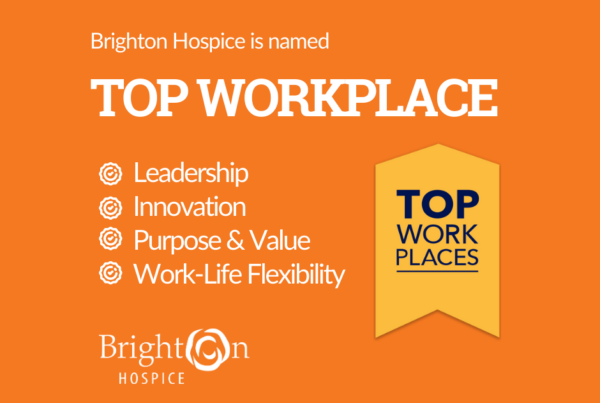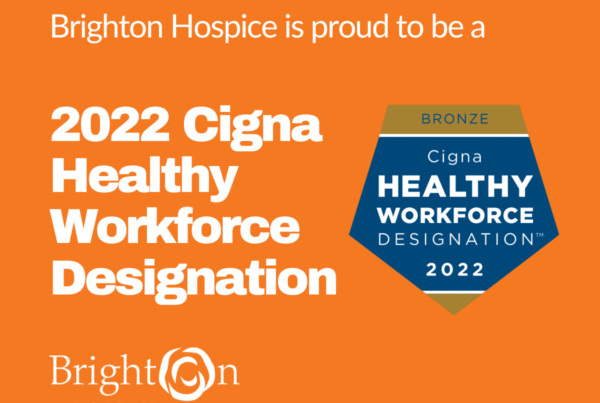Brighton Hospice
On the Importance of
Communication in Facilities
When hospice comes in to a facility to provide care for a patient, the hospice team knows it is part of a larger team: the facility, the primary physician, the hospice team, the family, and the patient themselves all need to communicate in order to achieve the best experience possible.
“We are all on the team of the patient and the patient’s family,” says Kelly Weiler, Director of Clinical Services at Brighton Hospice in St. Louis Park, Minnesota. “The more that we can communicate and be on the same page, the smoother and more positive the experience.”
Brighton Hospice honors the communication preferences of everyone involved. Some family members prefer texts or phone calls over emails so they can receive information right away about their loved one’s care.
When it comes to communication with primary care physicians, some choose to stay extremely involved with their patient’s care, whereas others want the hospice physician to take charge. Regardless of how the communication happens, Brighton always keeps the primary physician appraised.
Communicating with facility team members is instrumental to the successful care of Brighton’s patients. “We are working as a team, all hands on deck, at the place where the patient lives” says Kelly. “They’re getting care from both the facility staff and hospice staff, so we all need to be on the same page.” While the facility staff maintain responsibility for the patient’s primary care, hospice provides that extra element of personalized attention.
“This is the one time [the patient and family are] going to have this experience,” Kelly reminds us. “It’s up to the hospice team to make sure it’s as positive as it can be.”
Another key way hospice can ensure that positive experience is to communicate directly with the patient. Some important questions to continually ask the patient include:
How are you feeling?
What can I do for you?
Are you having any pain?
What is important to you?
What about your hospice care is working?
What aspects of your hospice care are not working?
“We all know what’s coming,” says Kelly. “But we have the opportunity to really make this as positive an experience as it possibly could be.”
The goal of hospice is that, when the experience is over, the patient’s family can say, “My loved one was not in pain. They were comfortable. They had their dignity. We were knowledgeable about what we would experience throughout this process. My loved one had a positive end of life experience.”




